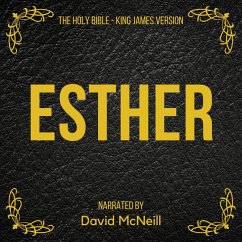While we do not know when the Book of Esther written, or who wrote it, the events that unfold in it suggest that it was written approximately 100 years after the exile of Jews from Jerusalem. In this Book, there is no mention of God, and it is believed that that is done because the author wanted to make God present and active through His work. Around 484 BC, King Ahasuerus ordered a 180-day celebration as a show of his wealth and power. On the last day of the celebration, he ordered his wife, Queen Vashti, to appear and demonstrate her beauty, but she refused. The king deposed her and began to look for a new queen from within his kingdom. Concealing her Jewish identity, Esther entered the contest. The king took to her immediately and she became the new queen around 478 BC. Mordecai, Esther's cousin, overheard two of the king's guards plotting to kill him. He informed Esther of this plan, who informed the king. Mordecai's position was elevated within the royal court. King Ahasuerus appointed Haman to the highest position in Persia. Haman ordered everyone to kneel before him. Everyone did, except Mordecai. Haman was furious and convinced the king to have Mordecai and all the Jews exterminated. The King agreed and issued a decree. Mordecai and Esther planned to have the decree overturned but it was not possible. Esther organized a banquet for the king and informed him that she was Jewish and that Haman had plotted to have all the Jews murdered. The king then had Haman executed. The decree that he made earlier could not be reversed by law, so another had to be made for the Jews to defend themselves and exterminate their enemies. They triumphed. This book is a story of hope and God's providence its essential message being that even if God seems to be missing, He is not. Mordecai helped save the king and his act came back to him as a reward from God, and all the Jewish people were saved.
Dieser Download kann aus rechtlichen Gründen nur mit Rechnungsadresse in A, D ausgeliefert werden.








